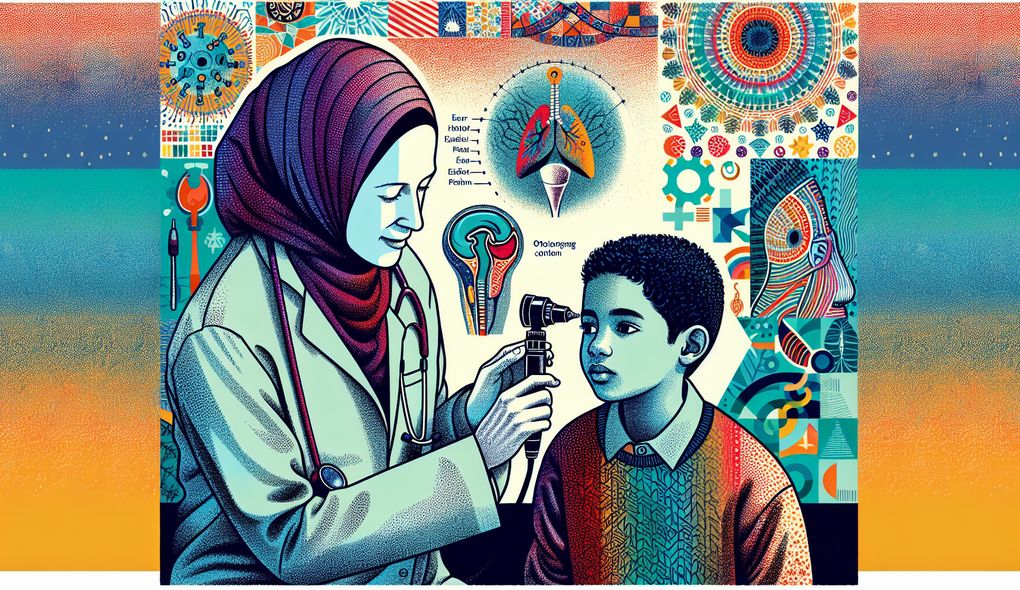Tell us about a situation where you had to work under pressure and in a critical situation.
INTERMEDIATE LEVEL

Sample answer to the question:
One situation where I had to work under pressure and in a critical situation was during my residency in Otolaryngology. We had a patient come in with a severe case of epistaxis, or nosebleed, that was causing significant bleeding and distress. As the on-call physician, it was my responsibility to quickly assess the situation and take immediate action. I gathered the necessary equipment and quickly applied direct pressure to the bleeding area. Despite the urgency of the situation, I remained calm and focused, reassuring the patient and communicating with the nursing staff. With my quick intervention and expertise, we were able to control the bleeding and stabilize the patient. This experience taught me the importance of remaining calm under pressure and making critical decisions in a timely manner.
Here is a more solid answer:
During my residency in Otolaryngology, I encountered a critical situation where a pediatric patient was brought in with a foreign body lodged in their throat. The child was in distress and struggling to breathe, causing panic among the parents. As the on-call physician, I immediately took charge of the situation. I reassured the parents and communicated clearly and effectively with the nursing staff to gather the necessary equipment and prepare for the procedure. Using my excellent diagnostic skills, I quickly determined the exact location of the foreign body and formulated a plan for its safe removal. Despite the pressure of the situation, I remained focused and made quick decisions to ensure the child's safety. With precise and careful maneuvering, I successfully removed the foreign body, relieving the obstruction and restoring the child's ability to breathe. This experience reinforced my ability to work under pressure, make critical decisions, and effectively communicate with both patients and healthcare professionals.
Why is this a more solid answer?
The solid answer provides a more comprehensive and detailed account of the candidate's experience working under pressure and in a critical situation. It highlights their effective communication skills, excellent diagnostic abilities, and the importance of quick decision-making. However, it could still benefit from further elaboration on the candidate's ability to remain calm and maintain a patient-centered approach.
An example of a exceptional answer:
Working in a busy emergency department, I encountered a critical situation involving a patient with a laryngeal obstruction due to an allergic reaction. The patient was unable to breathe and was rapidly deteriorating. As the on-call Otolaryngologist, I was called to assess and intervene. Time was of the essence, so I swiftly coordinated with the emergency team to ensure a smooth and efficient execution of the intervention. I maintained open and clear lines of communication, reassuring the patient and their family throughout the process. Drawing upon my extensive clinical experience and knowledge, I promptly performed an emergency cricothyrotomy to establish a secure airway, saving the patient's life. In the aftermath, I collaborated closely with the critical care team to ensure optimal post-procedural care. This experience demonstrated my ability to work calmly and effectively under pressure, make critical decisions, collaborate with interdisciplinary teams, and provide exceptional patient-centered care.
Why is this an exceptional answer?
The exceptional answer goes above and beyond by providing a highly detailed and impactful example of the candidate's ability to work under pressure and in a critical situation. It showcases their exceptional communication skills, excellent diagnostic abilities, quick decision-making, collaboration with interdisciplinary teams, and commitment to patient-centered care. It would be difficult to provide a more comprehensive answer to this question based on the job description.
How to prepare for this question:
- Reflect on past experiences where you have worked under pressure and in critical situations. Focus on situations where your role as an otolaryngologist was crucial.
- Think about the specific skills and qualities mentioned in the job description that are relevant to working under pressure. Prepare examples that highlight those skills.
- Practice articulating your experiences and the steps you took in a clear and concise manner. Emphasize your ability to remain calm, make critical decisions, and communicate effectively.
- Research common critical situations in otolaryngology and familiarize yourself with best practices and protocols. This will demonstrate your commitment to staying up-to-date with advancements in the field.
- During the interview, listen carefully to the question and take a moment to gather your thoughts before responding. This will help you provide a well-structured and thoughtful answer.
What are interviewers evaluating with this question?
- Ability to work under pressure
- Effective communication
- Excellent diagnostic and decision-making abilities

